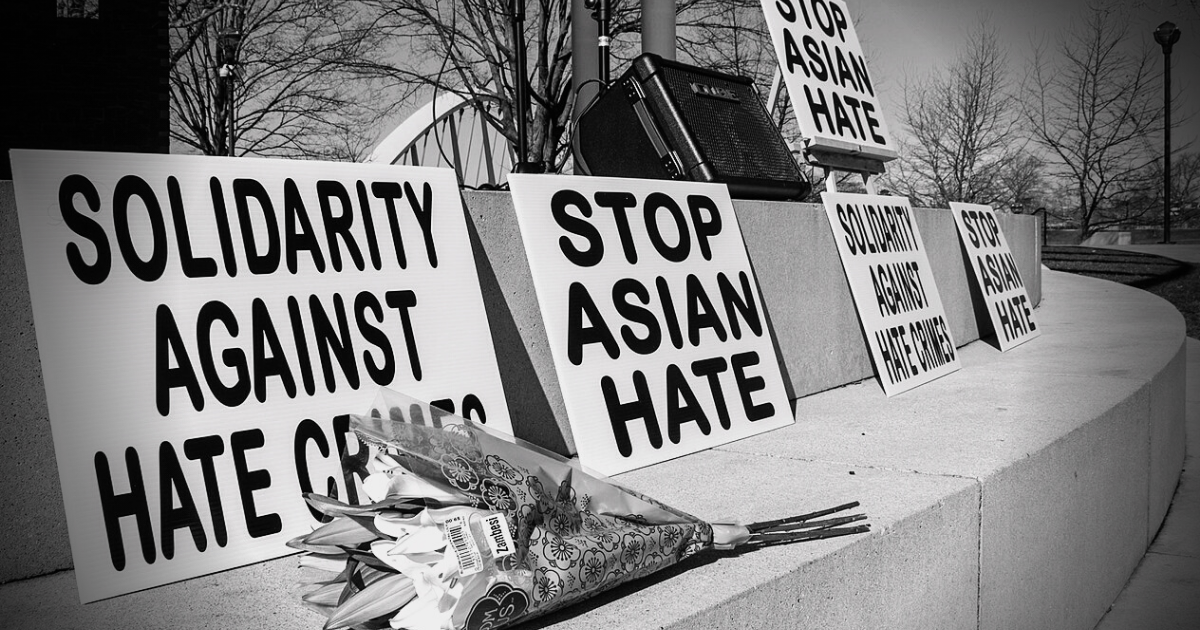Violence against Asian Americans has increased exponentially since the coronavirus pandemic. In Texas, many in the AAPI community feel that acutely, heightened by recent attacks in Dallas that were at first overlooked as hate crimes.
Last week, the Dallas Police Department decided to not jump to any conclusions after an individual opened fire at the Hair World Salon in north Dallas, injuring three Korean women. The next day, the DPD reversed course and said that incident in the Asian Trade District was indeed part of a pattern of violence toward the AAPI community.
This month there were two prior shootings at businesses owned by Asian Americans in north Dallas. The DPD also started working with the FBI and other organizations on a task force to locate the suspect. And they did.
On Tuesday morning, the DPD arrested 36-year-old Jeremy Smith. According to Dallas Police Chief Eddie Garcia, Smith was charged with three counts of aggravated assault. The office of the U.S. Attorney of the Northern District of Texas, along with the FBI and the Department of Justice, opened an investigation into a hate crime. Smith’s girlfriend also told authorities he had been suffering from delusions about Asian Americans.
The shootings in north Dallas are far from the only incidents targeting the AAPI community in Texas. Last year the Signal wrote about the aftermath of an Asian-owned restaurant in Houston being vandalized with graffiti of racial slurs. Mike Nguyen, the owner of the ramen restaurant Noodle Tree, had recently been on local television before the vandalization criticizing Gov. Greg Abbott for lifting the mask mandate in Texas.
Stop Asian Hate, which was organized by a coalition of organizations that has been tracking harassment and violence against the AAPI community since March of 2020, reported a total of 10,905 hate incidents against Asian American and Pacific Islander persons from March 19, 2020 to December 31, 2021. According to Stop Asian Hate, over 16 percent of those attacks have involved physical assault.
Stop Asian Hate also notes that the biggest share of incidents (63 percent) that members of the AAPI community have endured have been verbal harassment. Many high-profile people, including former President Trump, have used gross and inflammatory language about Covid-19 that has adversely impacted the AAPI community.
While the arrest of Smith is welcome news in Texas, many leaders in the AAPI community have indicated this was an entirely foreseeable event. Linh Nguyen, the senior advisor of RUN AAPI, spoke to the Signal about the inability for many police departments or other organizations committed to public safety needing a larger aptitude for recognizing the danger to the AAPI community.
“That area, Dallas’ Korean Historic District, hasn’t been safe for weeks — and we’ve been hearing that all the way here in Houston,” said Nguyen. “There’s been a pattern of these targeted shootings around the city. Our community is scared, they’re tired, and these small business hubs are suffering. We’re worried about our future here and how we can make a living.”
Pew Research recently published a report noting that 63 percent of Asians in America believe that violence against their community has increased. Additionally, 36 percent of Asian adults have changed their daily routine due to fears of being targeted.
“There are harmful consequences of overlooking this kind of hate and it sends a deadly message that anti-Asian hate isn’t real or that it can be tolerated,” said Nguyen. She also stressed that the impact of these incidents is devastating, particularly for Asian women. “We can’t just let this be another story that people will forget by the weekend. For Nguyen, she is urging a “reimagining” of public safety and encouraging community members to center the AAPI community going forward. Francine Ly, who is running for state senate in North Texas, also emphasized the lack of resources devoted to the safety of the AAPI community. “Our AAPI community will be working closely with the local police department to establish pop-up safety shops to ensure that incidents such as these are reported quickly for better monitoring and prevention,” she said.
Original photo: Becker1999 / Wikimedia Commons
A longtime writer and journalist, Jessica was thrilled to join the Texas Signal where she could utilize her unique perspective on politics and culture. As the Features and Opinion Editor, she is responsible for coordinating editorials and segments from diverse authors. She is also the host of the podcast the Tex Mix, as well as the co-host for the weekly SignalCast. Jessica attended Harvard College, is a onetime fitness blogger, and has now transitioned to recreational runner (for which her joints are thankful).





